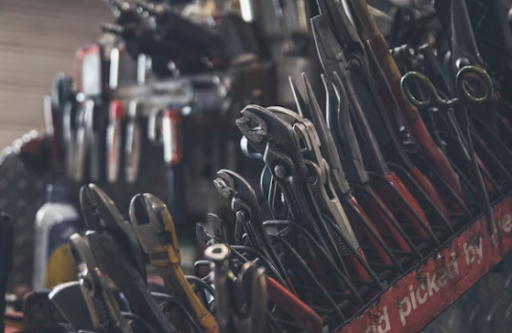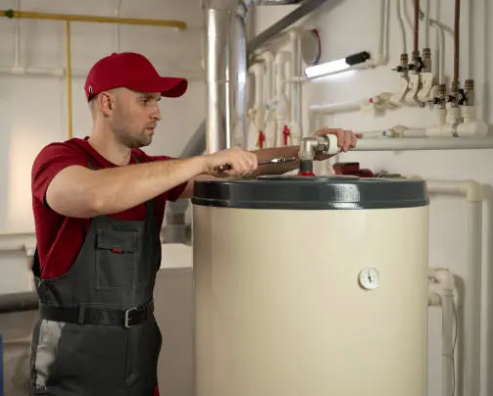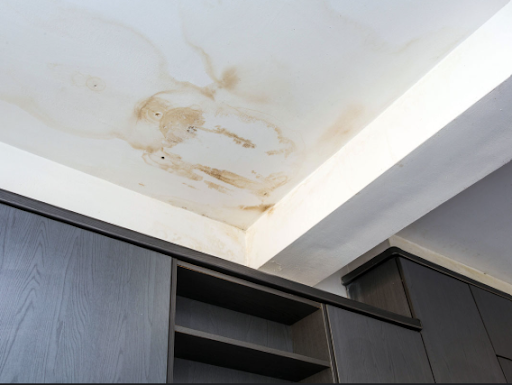March 11, 2025
Plumbing emergencies can cause significant damage and inconvenience if not addressed promptly. From burst pipes to sewer backups, these issues require immediate attention to prevent further damage and potential health risks. Understanding the most common plumbing emergencies can help homeowners and business owners take quick action when problems arise.
Here’s a detailed look at some of the most common plumbing emergencies:
Burst Pipes
Burst pipes are one of the most severe plumbing emergencies and can lead to extensive water damage within minutes. They often occur due to:
- Freezing temperatures: Water expands when it freezes, putting pressure on pipes until they burst.
- Old or corroded pipes: Over time, pipes weaken and become more susceptible to breaking.
- High water pressure: Excessive pressure can strain pipes, causing them to rupture.
A burst pipe can flood your home, damaging walls, flooring, and personal belongings. If you suspect a pipe has burst, turn off the main water supply immediately and contact a plumber.
Clogged Drains
A clogged drain can disrupt daily activities and lead to water backups. Common causes include:
- Hair and soap scum: Frequently clog bathroom sinks and shower drains.
- Grease and food debris: Can accumulate in kitchen sinks and garbage disposals.
- Foreign objects: Items like wipes, paper towels, and small toys can block toilets and drains.
Slow drainage, gurgling sounds, or water pooling in sinks and tubs indicate a clogged drain. If left unaddressed, a clog can lead to overflows and water damage.
Leaking Faucets and Toilets
Leaking fixtures may seem like minor nuisances, but they can waste a significant amount of water and lead to costly water bills. Common causes include:
- Worn-out washers and seals: These components degrade over time, leading to drips.
- Loose or damaged connections: Pipes and fittings can loosen, causing leaks.
- Rust and corrosion: Older fixtures may develop leaks due to rust buildup.
A continuously running toilet can waste hundreds of gallons of water per day, while a dripping faucet can increase water bills and cause rust or mold growth.
No Hot Water
A sudden lack of hot water is a major inconvenience, especially in colder months. Common causes include:
- Malfunctioning water heater: Issues with heating elements, gas supply, or pilot lights can prevent water from heating.
- Sediment buildup: Over time, mineral deposits can accumulate in the water heater, reducing efficiency.
- Broken pipes: Leaks or damage in the hot water supply lines can cut off hot water.
If your water heater fails, check for any visible issues, such as a tripped circuit breaker or pilot light failure. If the problem persists, call a plumber.
Sewer Line Backups
A sewer backup is a serious plumbing emergency that can lead to unsanitary conditions and property damage. Common causes include:
- Tree root infiltration: Roots can grow into sewer lines, causing blockages.
- Collapsed or damaged pipes: Aging sewer lines may crack or break.
- Flushed non-biodegradable items: Wipes, feminine hygiene products, and grease can clog sewer lines.
Signs of a sewer backup include foul odors, slow drains in multiple fixtures, and gurgling sounds in toilets. Immediate professional intervention is necessary to prevent hazardous wastewater exposure.
Broken Water Lines
Underground water lines supply water to your home. When these lines are damaged, you may notice:
- Low water pressure
- Puddles or wet spots in the yard
- Unexplained spikes in water bills
Damage can result from construction work, soil shifting, or pipe deterioration. A plumber can locate and repair the break to restore water flow and prevent property damage.
Clogged Garbage Disposal
A garbage disposal blockage can lead to kitchen sink backups and unpleasant odors. Common causes include:
- Overloading: Too much food waste at once can clog the system.
- Inappropriate items: Fibrous foods, bones, coffee grounds, and grease can jam the disposal.
- Worn-out blades or motor issues: Older disposals may struggle to function properly.
If your disposal is jammed, avoid using harsh chemicals, as they can damage the unit. A plumber can safely clear the clog and restore normal function.
Frozen Water or Heating Pipes
During cold weather, water inside pipes can freeze, leading to potential bursts when the ice expands. Signs of frozen pipes include:
- No water flow from faucets
- Frost on exposed pipes
- Strange noises from pipes when turning on water
If you suspect frozen pipes, turn off the water supply and try to thaw the pipes using gentle heat sources like a hairdryer or space heater. If a pipe bursts, contact a plumber immediately to minimize water damage.
Conclusion
Plumbing emergencies can happen at any time and often require immediate professional attention to prevent further damage. From burst pipes and clogged drains to sewer backups and water heater failures, knowing how to identify these issues early can save you time, money, and stress.
If you experience a plumbing emergency, act quickly by shutting off the water supply, assessing the situation, and calling a licensed plumber for repairs. By staying prepared and recognizing the signs of common plumbing issues, you can protect your home from extensive damage and costly repairs.


